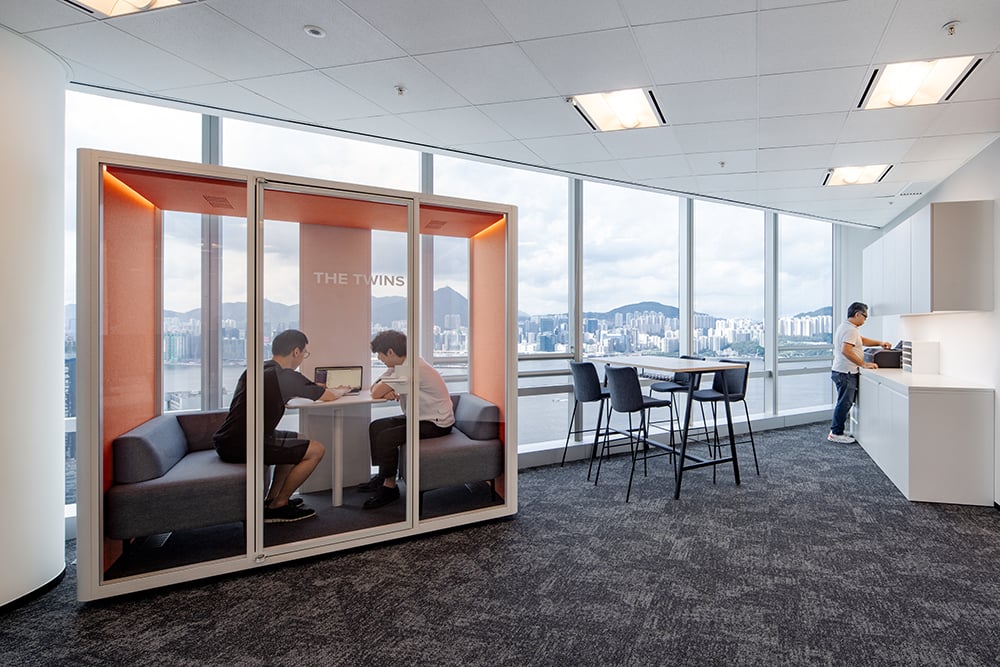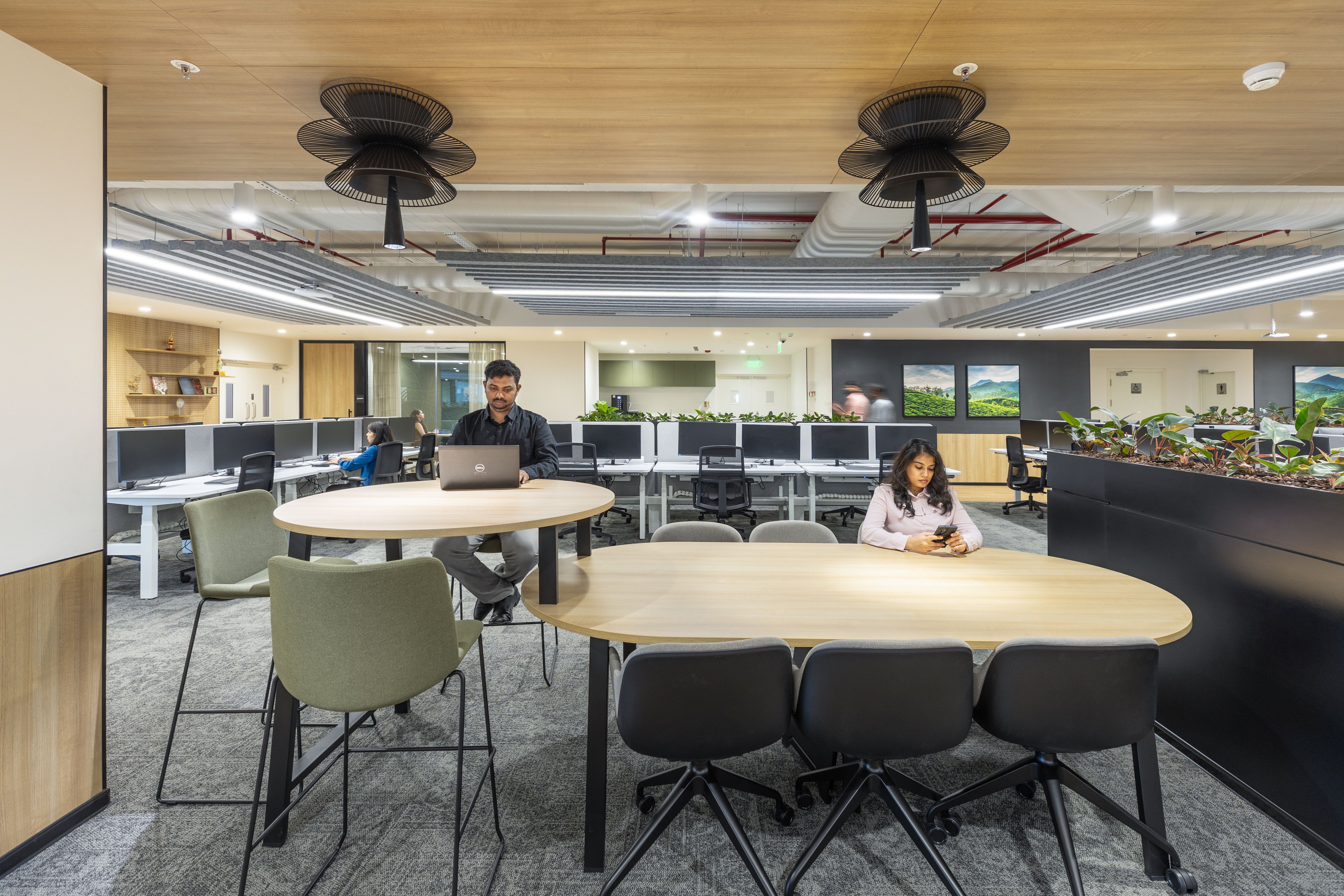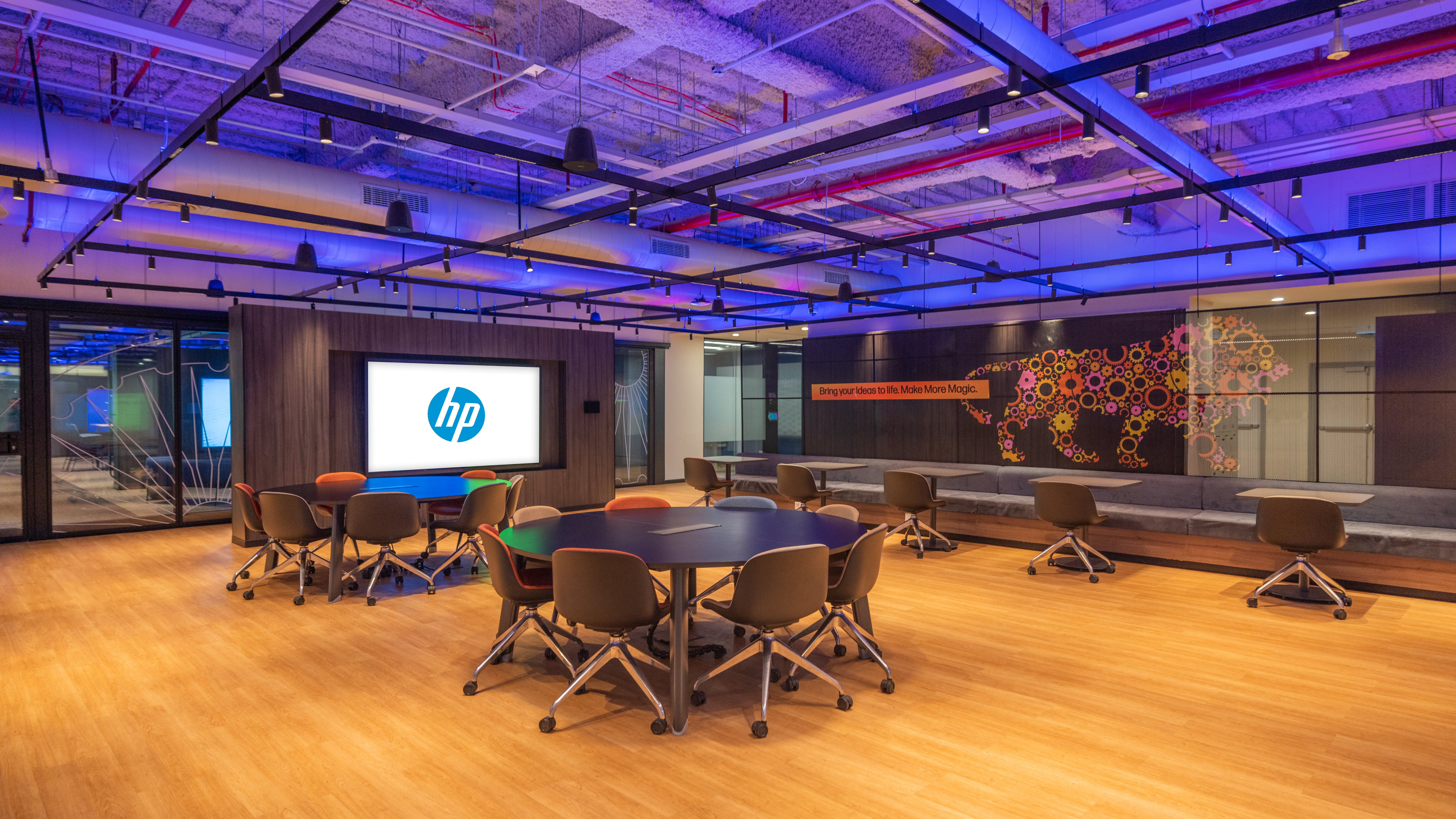The New Sound of Work: From Noise to Focus | Abi Roni Mattom speak to People Matters

In today’s hybrid world, the buzz of collaboration is often seen as a sign of a thriving workplace. But when that buzz turns into a constant roar, productivity can quickly suffer. According to the Unispace Global Workplace Insights Report 2025 – A Moment of Clarity, noise and interruptions are the number one barrier to doing great work.
As organisations across India continue to refine their hybrid models, finding the right balance between energy and focus has become more critical than ever.
Abi Roni Mattom, Country Director of Unispace India, speaks to People Matters [click here to read the media coverage] about how HR leaders can address workplace noise, design purposeful hybrid offices, and measure real ROI beyond attendance.
From Silence to Strategy: Designing for Human Energy
“Noise and interruptions are indeed seen as the biggest barriers to productivity, and it’s our responsibility to address this,” says Abi Roni Mattom, Country Director, Unispace India.
Rather than creating quiet, sterile offices that stifle collaboration, Unispace designs purpose-driven environments with zones tailored to different kinds of work — focus rooms for deep concentration, collaboration zones for discussions, and informal areas for spontaneous connections.
Acoustic design now plays a key role. Soft furnishings, sound-absorbing materials, and thoughtful layouts help reduce distractions naturally — without muting the energy of the workplace.
However, Abi emphasizes that design alone isn’t enough. HR must complement the physical environment with policies and culture that reinforce focus and respect. “When HR introduces meeting norms, focus blocks, and social cues that promote consideration, interruptions decrease organically,” he notes.
Making Office Days Purposeful
In India, employees spend roughly 52% of their weekly working hours in the office — lower than the global average. That means every in-office day must deliver real value.
“With hybrid work now the norm, the focus has shifted from attendance to purpose,” says Abi.
Unispace’s recent projects show that companies are rethinking office time as an opportunity for mentoring, onboarding, deep work, and creative problem-solving. Technology integration, ergonomic layouts, and neurodiverse-friendly design are becoming standard.
Many workplaces are also becoming multi-functional — easily transforming into training centers, ideation hubs, or client engagement spaces. “On in-office days, employees should have both the infrastructure and cultural support to focus on their goals and deliver measurable outcomes,” Abi adds.

Flexible, open space of an international law firm for hosting small to large scale company events
Redefining ROI: Beyond Attendance Metrics
The pandemic permanently changed how we measure success. Counting heads in the office no longer reflects engagement or productivity.
“Attendance is clearly no longer the right measure of productivity or success,” says Abi. “Businesses should focus on how the workplace actually helps people do better work.”
Unispace encourages companies to measure distraction-free focus time, collaboration levels, and time-to-productivity for new hires. These metrics, when linked to tangible business outcomes — faster delivery, innovation, or retention — show the true ROI of workplace transformation.
A case in point: BlackLine, a Unispace client, collects data on how employees use different spaces and connects those insights to performance outcomes — proving that intentional design directly drives results.
Collaboration Without Chaos
The “perfect” office layout doesn’t exist — but flexibility always wins.
In India, focus rooms remain in high demand, but adaptable collaboration areas and fluid neighborhoods consistently perform best.
Unispace’s design for HP’s Gurgaon office illustrates this perfectly. Movable digital screens allow teams to shift seamlessly from small demos to large town halls, supporting multiple uses within a single environment.
Still, even the best space design needs good etiquette. HR plays a crucial role in preventing “collaboration sprawl” — by guiding teams to choose the right space for the right activity and manage shared areas thoughtfully.
Looking Ahead: Moving Past the ‘Desk Time’ Myth
As we look toward 2026 and beyond, Abi says it’s time to retire one outdated belief — that long hours at a desk equal productivity.
“Productivity comes from doing the right work in the right environment,” he stresses. HR can help redefine office time by promoting purposeful, in-person experiences such as mentoring sessions, innovation sprints, and learning workshops that enhance engagement and skill growth.
Small, intentional changes — when aligned with design and culture — can transform how teams work and feel.
About Abi Roni Mattom, Country Director, India

Abi Roni Mattom has over 20 years of experience in design, construction, and project management.
Abi joined Unispace in 2020 as Country Director for India to oversee business strategies, client solutions and operations. He is one of the leadership team members in Asia.
Abi has a Bachelor Degree in Civil Engineering from Visvesvaraya Technological University and a Master of Business Administration from Indira Gandhi National Open University. Also, he is a member of the Royal Institute of Chartered Surveyors.
Follow Abi Roni Mattom on LinkedIn.





